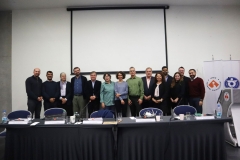
FACULTY OF BUSINESS
Department of Political Science and International Relations
PSIR 428 | Course Introduction and Application Information
| Course Name |
Modernity and Its Critics
|
|
Code
|
Semester
|
Theory
(hour/week) |
Application/Lab
(hour/week) |
Local Credits
|
ECTS
|
|
PSIR 428
|
Fall/Spring
|
3
|
0
|
3
|
6
|
| Prerequisites |
None
|
|||||
| Course Language |
English
|
|||||
| Course Type |
Elective
|
|||||
| Course Level |
First Cycle
|
|||||
| Mode of Delivery | - | |||||
| Teaching Methods and Techniques of the Course | - | |||||
| Course Coordinator | ||||||
| Course Lecturer(s) | ||||||
| Assistant(s) | ||||||
| Course Objectives | The primary purpose of this course is to introduce students to the controversies about modernity/modern society in political theory. |
| Learning Outcomes |
The students who succeeded in this course;
|
| Course Description | Particular attention will be paid to the experiences of imperialism, totalitarianism, genocide and the Holocaust; the paradoxes of capitalism and the nation-state; the destructive forces of global technology as well as the contemporary debates about the Anthropocene, political ecology, and climate change. |
|
|
Core Courses | |
| Major Area Courses |
X
|
|
| Supportive Courses | ||
| Media and Management Skills Courses | ||
| Transferable Skill Courses |
WEEKLY SUBJECTS AND RELATED PREPARATION STUDIES
| Week | Subjects | Related Preparation |
| 1 | Introduction: Major Themes and Controversies | |
| 2 | Malaises of Modernity | 1) Charles Taylor, “Three Malaises”, The Malaise of Modernity (Anansi Press, 1991), 1-12. 2) Jane Bennett, “Modernity and Its Critics”, in Anne Phillips, Bonnie Honig and John Dryzek (eds), The Oxford Handbook of Political Theory (Oxford University Press, 2008), 211-224. |
| 3 | Alienation and Exploitation | Marx, “Economic and Philosophical Manuscripts”, The Marx-Engels Reader (W. W. Norton and Company, 1978), 70-101. |
| 4 | Ideology as Illusion | Marx and Engels, The German Ideology, (Lawrence & Wishart, 1974), 37-68. |
| 5 | One-Dimensional Society? | Herbert Marcuse, One-Dimensional Man (Beacon Press, 2002), 1-56. |
| 6 | Midterm I | |
| 7 | Imperialism | Arendt, “Part Two: Imperialism”, The Origins of Totalitarianism (Harcourt), 123-158; 185-207. |
| 8 | The Holocaust: Concentration Camps | Arendt, “Total Domination”, The Origins of Totalitarianism (Harcourt), 437-459. |
| 9 | Genocide | Raphael Lemkin, “Genocide”, Axis Rule in Occupied Europe (The Lawbook Exchange, 2008). |
| 10 | Midterm II | |
| 11 | Revolution and Politics | Arendt, “The Revolutionary Tradition and Its Lost Treasure”, On Revolution (Penguin, 1963), 215-281. |
| 12 | National Identity and Citizenship | Habermas, “National Identity and Citizenship” Between Facts and Norms: Contributions to a Discourse Theory of Law and Democracy (MIT Press, 1998), 491-515. |
| 13 | Secularism | Habermas, “What is Meant by a ‘PostSecular Society’?: A Discussion on Islam in Europe”, Europe: The Faltering Project (Polity, 2009), 59-77. |
| 14 | Anthropecene and Political Ecologies | 1) Jane Bennett “Political Ecologies”, Vibrant Matter: A Political Ecology of Things (Duke University Press, 2010), 94-109. 2) Christophe Bonneuil and Jean-Baptiste Fressoz, The Shock of the Anthroposcene (Verso, 2016), 1-30. |
| 15 | Concluding Remarks | |
| 16 | Final Exam |
| Course Notes/Textbooks | Required texts mentioned above.
*All course readings are available at the University Library and as open sources. |
| Suggested Readings/Materials |
EVALUATION SYSTEM
| Semester Activities | Number | Weigthing |
| Participation |
1
|
20
|
| Laboratory / Application | ||
| Field Work | ||
| Quizzes / Studio Critiques | ||
| Portfolio | ||
| Homework / Assignments |
2
|
30
|
| Presentation / Jury |
1
|
20
|
| Project | ||
| Seminar / Workshop | ||
| Oral Exams | ||
| Midterm | ||
| Final Exam |
1
|
30
|
| Total |
| Weighting of Semester Activities on the Final Grade |
4
|
70
|
| Weighting of End-of-Semester Activities on the Final Grade |
1
|
30
|
| Total |
ECTS / WORKLOAD TABLE
| Semester Activities | Number | Duration (Hours) | Workload |
|---|---|---|---|
| Theoretical Course Hours (Including exam week: 16 x total hours) |
16
|
3
|
48
|
| Laboratory / Application Hours (Including exam week: '.16.' x total hours) |
16
|
0
|
|
| Study Hours Out of Class |
12
|
3
|
36
|
| Field Work |
0
|
||
| Quizzes / Studio Critiques |
0
|
||
| Portfolio |
0
|
||
| Homework / Assignments |
2
|
15
|
30
|
| Presentation / Jury |
1
|
20
|
20
|
| Project |
0
|
||
| Seminar / Workshop |
0
|
||
| Oral Exam |
0
|
||
| Midterms |
0
|
||
| Final Exam |
1
|
35
|
35
|
| Total |
169
|
COURSE LEARNING OUTCOMES AND PROGRAM QUALIFICATIONS RELATIONSHIP
|
#
|
Program Competencies/Outcomes |
* Contribution Level
|
||||
|
1
|
2
|
3
|
4
|
5
|
||
| 1 | To be able to use the theoretical and practical knowledge acquired in the areas of Political Science and International Relations. |
|||||
| 2 | To be able to have the basic knowledge of, and make use of other disciplines which contribute to the areas of Political Science and International Relations. |
X | ||||
| 3 | To be able to distinguish the differences between classical and contemporary theories and to assess their relationship. |
X | ||||
| 4 | To be able to recognize regional and global issues, and develop solutions based on research. |
|||||
| 5 | To be able to assess the acquired knowledge and skills in the areas of Political Science and International Relations critically. |
X | ||||
| 6 | To be able to transfer ideas and proposals on issues in the areas of Political Science and International Relations to other people and institutions verbally and in writing. |
|||||
| 7 | To be able to identify the historical continuity and changes observed in the relations between the actors and institutions of national and international politics. |
|||||
| 8 | To be able to examine concepts, theories, and developments with scientific methods in the areas of Political Science and International Relations. |
X | ||||
| 9 | To be able to take responsibility as an individual and as a team member. |
X | ||||
| 10 | To be able to act in accordance with the scientific and ethical values in studies related to Political Science and International Relations. |
X | ||||
| 11 | To be able to collect data in the areas of Political Science and International Relations and communicate with colleagues in a foreign language ("European Language Portfolio Global Scale", Level B1). |
|||||
| 12 | To be able to speak a second foreign at a medium level of fluency efficiently. |
|||||
| 13 | To be able to relate the knowledge accumulated throughout human history to their field of experience. |
|||||
*1 Lowest, 2 Low, 3 Average, 4 High, 5 Highest
NEWS |ALL NEWS
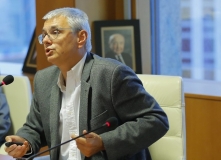
Sıtkı Egeli participated as a guest speaker at the HCOC Seminar
Faculty member of IUE Political Science and International Relations, Assoc. Prof. Dr. Sıtkı Egeli participated as a guest speaker at the HCOC
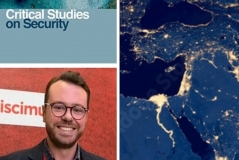
Umut Can Adısönmez's New Article Published in the Journal "Critical Studies on Security"
Faculty member of IUE Political Science and International Relations, Dr. Umut Can Adısönmez and Assoc. Prof. Laçin İdil Öztığ from Yıldız Technical
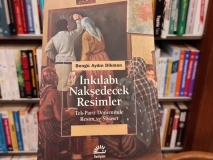
Dr. Bengü Aydın Dikmen's new book "İnkılabı Nakşedecek Resimler" is published!
Bengü Aydın Dikmen focuses on the painting policy during the foundation and construction period of the Republic. In this way, she also
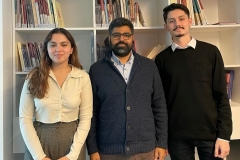
Serhun Al and Umut Can Adısönmez Lectured on Conflict Resolution and Peace Building
Faculty member of IUE Political Science and International Relations, Dr. Serhun Al and Dr. Umut Can Adısönmez, participated as trainers in the
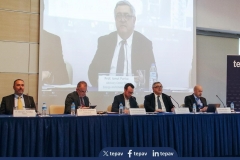
Umut Can Adısönmez participated in the "Human Security and Resilience in South East Europe" Panel
Faculty member of IUE Political Science and International Relations, Dr. Umut Can Adısönmez participated in the panel discussion "Human Security and Resilience
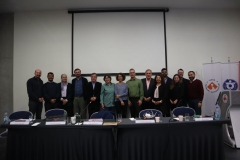
We Organized Our Republican Centennial Symposium
As the IUE Political Science and International Relations Department, we organized a symposium on the Centennial of our republic. In the symposium
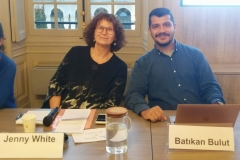
Batıkan Bulut presented his proceeding on the CEST 2023 Paris Symposium
Research assistant of the IUE Department of Political Science and International Relations, Batıkan Bulut presented his paper titled "Civil Society and Competitive



